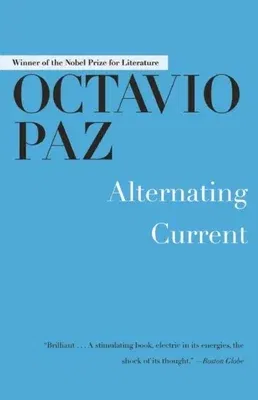Octavio Paz
(Author)Alternating CurrentPaperback, 7 July 2015

Qty
1
Turbo
Ships in 2 - 3 days
In Stock
Free Delivery
Cash on Delivery
15 Days
Free Returns
Secure Checkout

Print Length
224 pages
Language
English
Publisher
Arcade Publishing
Date Published
7 Jul 2015
ISBN-10
1628725311
ISBN-13
9781628725315
Description
Product Details
Author:
Book Format:
Paperback
Country of Origin:
US
Date Published:
7 July 2015
Dimensions:
20.83 x
13.72 x
2.29 cm
ISBN-10:
1628725311
ISBN-13:
9781628725315
Language:
English
Location:
New York
Pages:
224
Publisher:
Weight:
317.51 gm